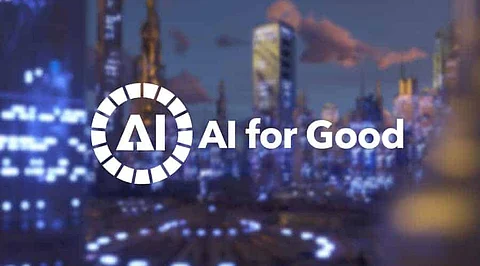
- Insights
- Cryptocurrencies
- Stocks
- White Papers
- Industry
- Geography
- Insights
- Cryptocurrencies
- Stocks
- White Papers
- Industry
- Geography


Recent progress in artificial intelligence has been immense and exponential. The technology is making its way out of research labs and into everyday lives, promising to help us tackle humanity's greatest challenges. As the UN specialized agency for information and communication technologies, ITU believes in the power of AI for good and has organized the "AI for Good" series since 2017. The 2018 AI for Good Global Summit brought together AI innovators and public and private-sector decision-makers, including more than 30 UN agencies, to generate AI strategies and support projects to accelerate progress towards the UN Sustainable Development Goals (SDGs).
The International Telecommunication Union (ITU) is the United Nations' specialized agency for information and communication technologies and has become one of the key UN platforms for exploring the impact of AI. ITU has stated that it "will provide a neutral platform for government, industry, and academia to build a common understanding of the capabilities of emerging AI technologies and consequent needs for technical standardization and policy guidance." The "AI for Good" series is the leading United Nations (UN) platform for dialogue on Artificial Intelligence (AI). As the UN specialized agency for ICTs, the International Telecommunication Union (ITU), in partnership with sister UN agencies, is organizing the annual "AI for Good Global Summit" for international dialogue, aimed at building a common understanding of the capabilities of emerging AI technologies.
The UN family has a critical role to play in balancing technological progress with social progress. ITU remains committed to continuing to work closely with sister UN agencies and all other stakeholders to build a common understanding of the capabilities of emerging AI technologies.
Along with this development, the United Nations declared the opening of a Centre on Artificial Intelligence and Robotics in the Netherlands to monitor developments in AI and robotics, with the support of the Government of the Netherlands and the City of The Hague. The office will help focus expertise on AI throughout the UN in a single agency, which will be organized under the UN Interregional Crime and Justice Research Institute (UNICRI). The UNICRI launched its program on AI and Robotics in 2015.
An innovative artificial intelligence (AI) tool that will make it easier for countries to measure the contributions of nature to their economic prosperity and well‑being was launched in April 2021, by the United Nations and the Basque Centre for Climate Change (BC3). Developed by the Statistics Division of the United Nations Department of Economic and Social Affairs (UN DESA), the UN Environment Programme (UNEP) and BC3, the new tool can vastly accelerate the implementation of the new ground-breaking standard for valuing the contributions of nature that were adopted by the UN Statistical Commission last month. The tool makes use of AI technology using the Artificial Intelligence for Environment and Sustainability (ARIES) platform to support countries as they apply the new international standard for natural capital accounting, the System of Environmental-Economic Accounting (SEEA) Ecosystem Accounting.
In November 2021, the United Nations adopted a historical text defining the common values and principles needed to ensure the healthy development of artificial intelligence. The agreement was adopted at the 41st session of the UNESCO General Conference, showing renewed cooperation on the ethics of artificial intelligence. The approaches AI ethics as a systematic normative reflection, based on a holistic and evolving framework of interdependent values, principles, and actions that can guide societies in dealing responsibly with the known and unknown impacts of artificial technologies on human beings, societies and the environment and offers them a basis to accept or reject artificial intelligence technologies.
